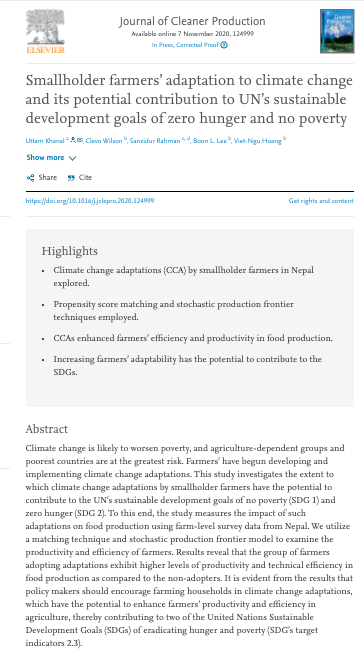Smallholder farmers’ adaptation to climate change and its potential contribution to UN’s sustainable development goals of zero hunger and no poverty

ABSTRACT
Climate change is likely to worsen poverty, and agriculture-dependent groups and poorest countries are at the greatest risk. Farmers’ have begun developing and implementing climate change adaptations. This study investigates the extent to which climate change adaptations by smallholder farmers have the potential to contribute to the UN’s sustainable development goals of no poverty (SDG 1) and zero hunger (SDG 2). To this end, the study measures the impact of such adaptations on food production using farm-level survey data from Nepal. We utilize a matching technique and stochastic production frontier model to examine the productivity and efficiency of farmers. Results reveal that the group of farmers adopting adaptations exhibit higher levels of productivity and technical efficiency in food production as compared to the non-adopters. It is evident from the results that policy makers should encourage farming households in climate change adaptations, which have the potential to enhance farmers’ productivity and efficiency in agriculture, thereby contributing to two of the United Nations Sustainable Development Goals (SDGs) of eradicating hunger and poverty (SDG’s target indicators 2.3).